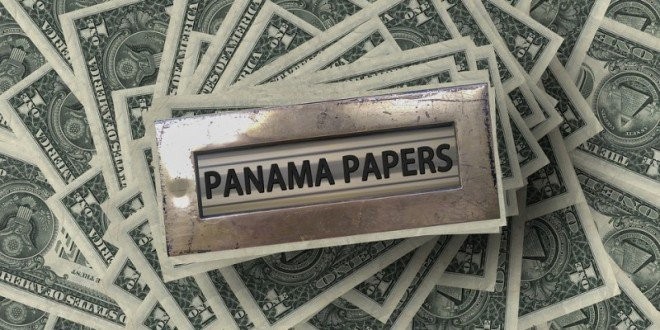

Last week’s fresh batch of Panama Papers revelations may have provided details of many Pakistanis with offshore accounts and companies, but are any of those people shamefaced about, or even vaguely embarrassed by, these revelations?
Not really. If anything, the new list featuring a number of ‘business’ families and media bosses almost normalises the whole process.
So many politicians (including the PM) keep reminding everyone that having an offshore account "is not breaking the law". But these people never mention that while hiding money in this way may not be illegal, it might certainly be immoral, unethical and generally shifty. The politicians get the most flak in this regard and well they should: the people who claim to be trying to fix the country’s economy and taxation system are the very same people who are hiding their money away in offshore jurisdictions, rather than keeping it within the country’s economy.
In some cases the instances are so absurd that it’s farcical: as for example in the case of a senator (Osman Saifullah) whose name along with those of his uncles features in many offshore accounts, and who says on his website "a strong Pakistan will have a fair and efficient tax system". A tax system which apparently is not equipped to tax his family’s wealth.
The PM meanwhile has told us that his sons’ offshore accounts and companies are related to the business they do in Britain, and that they are merely operating within the law. But here’s the thing: it’s still a case of avoiding tax: both in Pakistan and in Britain. In today’s world, there’s this tremendous emphasis on the distinction between tax evasion and tax avoidance, but really isn’t tax avoidance just another name for tax evasion that’s done using a very, very clever and expensive lawyer?
Why has it become almost acceptable to hide your money by stashing it away in tax havens or secretive, shadowy jurisdictions? The answer is that the rules are different for rich people. Managing rich people’s wealth is something that banks have done for many years and in various dodgy ways, mostly through the ‘private banking’ part of their organisation. In some cases, these dealings are just downright shady -- as for example in the case of the HSBC staffers who advised a client on how to bring their undocumented money back in to Britain (bring cash into the country and deposit the cash into various different ATMs). That’s the thing: money can buy you a lot of people and a lot of business and a lot of power and a lot of character-assassination of opponents… and some level of respectability because, as these people keep repeating, they are not breaking the law; they are simply looking after their wealth.
And on the subject of looking after wealth, a recent article by Nick Davies in The Guardian documents the difficult search for the billions accumulated by the Philippine dictator Ferdinand Marcos and his family. The Marcos family arrived in the USA in February 1986 with possessions that the customs authorities valued at $15 million. This included (among many other things) 70 pairs of jewel-studded cuff links, 24 gold bricks and a diamond necklace. But it was estimated that actually the fortune Marcos had amassed in power was 650 (!) times greater than this $15m figure.
The commission formed to recover this stolen wealth for the Philippines has been working on this for three decades and has traced much of the money to "hundreds of jurisdictions all over the world". But guess what? Well, thirty years later Marcos’ son is in the political mainstream and running for Vice President! That’s the resilience and near immunity that money gives you, and that is why people continue to prostrate themselves before wealth and choose Mammon over principle.
And the longer wealthy people shout loudly and persistently about how it is perfectly okay for them to avoid tax and stash their money away in offshore locations, the more the voices of ethical critics are silenced.
Shame on us.
Best wishes,